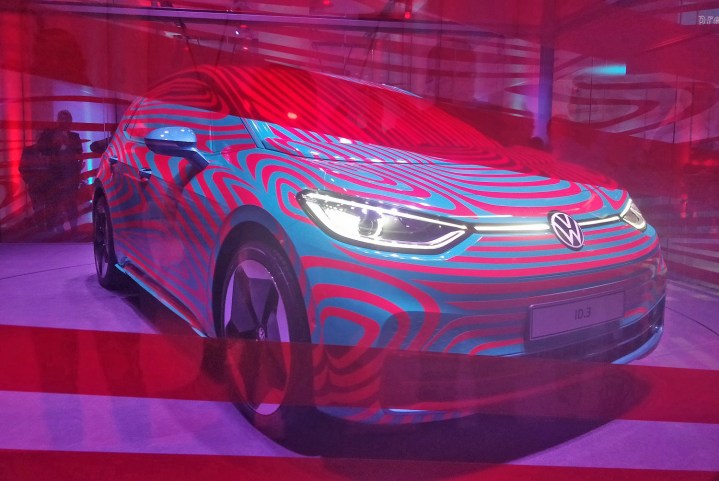
While some automakers are turning to tech giants like Intel and Google to develop in-car software, the Volkswagen Group believes it makes more sense to take the matter into its own hands. It plans to assemble an international team of more than 5,000 digital experts to develop a modular operating system named vw.os. It will make its debut in the electric ID.3 (pictured) scheduled to break cover at the 2019 Frankfurt Auto Show before gradually spreading to every model in the group’s portfolio by 2025.
Volkswagen’s growing Car.Software unit will be responsible for at least 60% of the group’s software development efforts by 2025, up from about 10% in 2019. The division will split its work into five key areas: Operating system and connectivity, intelligent body and cockpit, automated driving, vehicle, and energy performance, plus service platforms and mobility services.
Grouping software development into one division makes sense, especially considering the Volkswagen Group’s portfolio is one of the widest in the industry. It ranges from small, relatively affordable city cars like the Up! — which isn’t sold in the United States — to some of the most exclusive cars in the world like the Bugatti Chiron. The German company explained that, as of 2019, it sources up to 70 control units from about 200 different suppliers as it develops a new car. And, several of its brands have independently developed software — like infotainment and navigation technology — that overlaps. It aims to simplify the development process while sharply reducing its dependence on outside suppliers.
That doesn’t mean the eighth-generation Golf will come with the same infotainment system as Bugatti’s long-rumored second model. The basic platform will be the same, but each brand will customize it as it sees fits. The software will be highly flexible, so a brand like Lamborghini will be able to add a lap timer to its software if it needs one, while a Jetta in a car-sharing program could conceivably feature service-specific functions. The system will exchange information with the Volkswagen Automotive Cloud regardless of which model it’s installed in.
This approach to developing software is similar to how the Volkswagen Group already builds cars. Many of its platforms are surprisingly flexible; the Audi TT and the Volkswagen Atlas share the same basic underpinnings (the MQB platform) even though they’re completely different cars. The MEB platform developed for electric cars (including the aforementioned ID.3) will be even more modular. By applying this strategy to software, the group plans to develop better tech that will make its upcoming cars smarter and more user-friendly.



